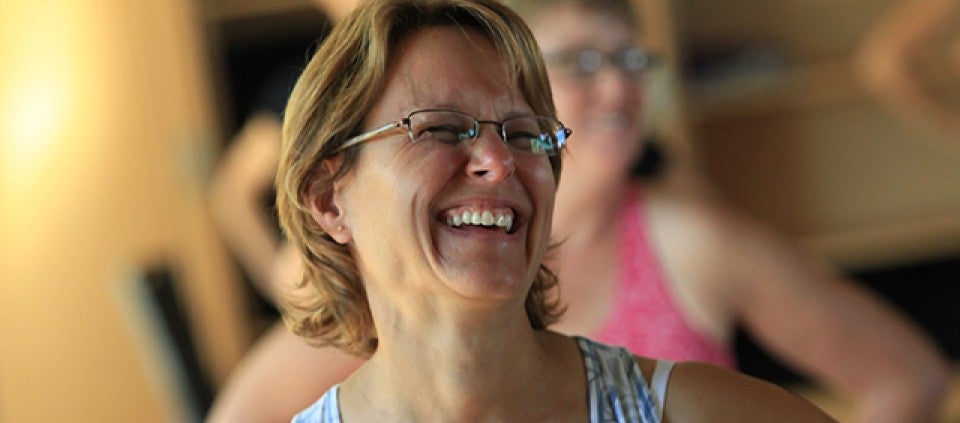Hardwiring Happiness

I don’t like to admit this, but I definitely have a hard time being happy, especially for extended periods of time. In any given situation, I’m masterful at finding something about which to be frustrated, disgruntled, or disappointed. I loathe this quality in myself, but a tendency to focus on the negative rather than the positive is apparently rather common. Evolutionarily, we humans are programmed to be on the lookout for the negative; after all, if our ancestors hadn’t been, they wouldn’t have survived. Some wild animal would have pounced on them and eaten them for lunch.
Of course, in the developed world, we don’t worry about being eaten by saber-toothed tigers, but a host of stressors in our homes, workplaces, and beyond can cause our fight-or-flight responses to kick in with a vengeance. And I seem to glom onto far too many of them.
But I don’t have to be a victim of my DNA, and neither do you. According to neuropsychologist and Kripalu invited presenter Rick Hanson, PhD, author of books like Just One Thing: Developing a Buddha Brain One Simple Practice at a Time, we can actually hardwire happiness into our brains. How does it work? In my latest Kripalu Perspectives podcast interview, Rick shares tips for manifesting true happiness.
- Seize opportunities to take in the good. That means really noticing when something positive happens during the course of the day—something as small as a stranger politely holding the elevator door open, or a co-worker complimenting your hair.
- Bathe in the good feelings for 15 to 30 seconds at a time. Notice where the pleasurable sensations live in your body and take time to relish them. “Some feel it as a warm glow spreading through the chest like the warmth of a cup of hot cocoa on a cold wintry day,” Rick says.
- Multiply your efforts. Try to “bathe in the good” at least half a dozen times a day. By doing so, you’re building your feel-good muscles, just like building your biceps at the gym.
- Identify your brand of vitamin C and seek it out. Rick emphasizes the need to “take in good experiences that are specifically aimed at our own lacks and wounds.” We all have wounds—holes in our hearts that have formed through mistreatment, rejection, abandonment, misfortune, or trauma. If your wound is connected to feelings of inadequacy, then seize opportunities for recognition. If rejection is the source of your wound, then look for experiences of inclusion. If anxiety is your issue, then seek out experiences that engender safety and security.
Abandonment is one of my wounds. Though I wasn’t actually abandoned in childhood, the fear of it was palpable and has continued into adulthood. To heal that wound, it seems as if it would be wise for me to seek out relationships that provide secure sources of love.
But whether I’m finding meaning in secure, loving relationships or simply enjoying a cool breeze or the warmth of a child’s smile, I need to make a concerted effort not just to look for the good, but to drink it in, to luxuriate in the blessings in my life—from my comfortable home to my steadfast friends to my healthy body to the work I love. As my old therapist would often say, “What you focus on expands.” If I want to experience greater happiness, I can’t expect to stumble on it. It’s up to me to make it happen—and that means it’s more tangible, too.
And that makes me happy.
© Kripalu Center for Yoga & Health. All rights reserved. To request permission to reprint, please e-mail editor@kripalu.org.
Portland Helmich has been investigating natural health and healing for more than 15 years, as a host, reporter, writer, and producer.
Full Bio and Programs